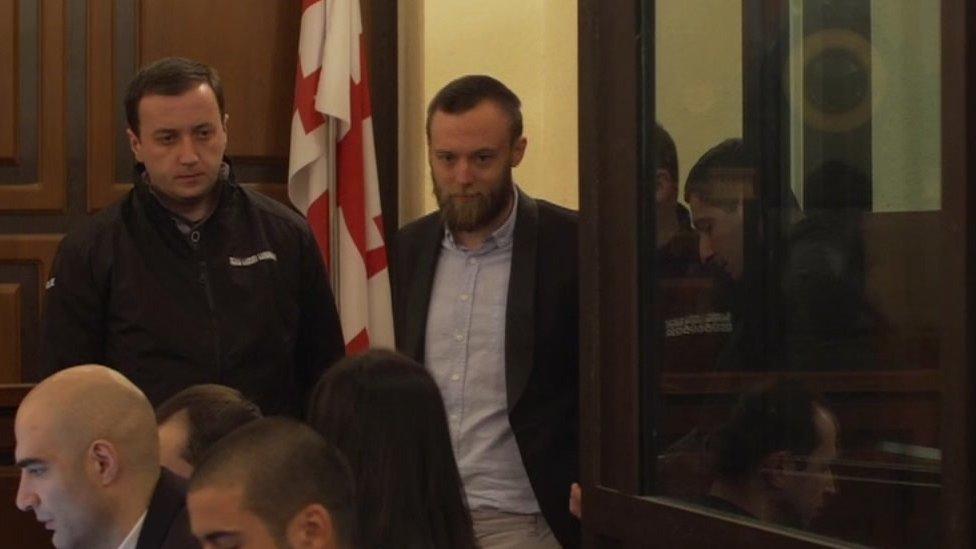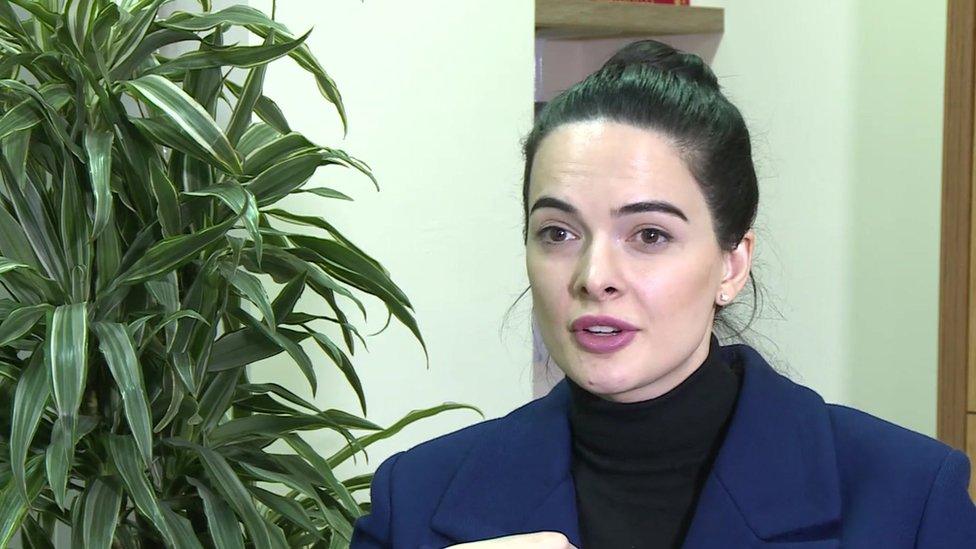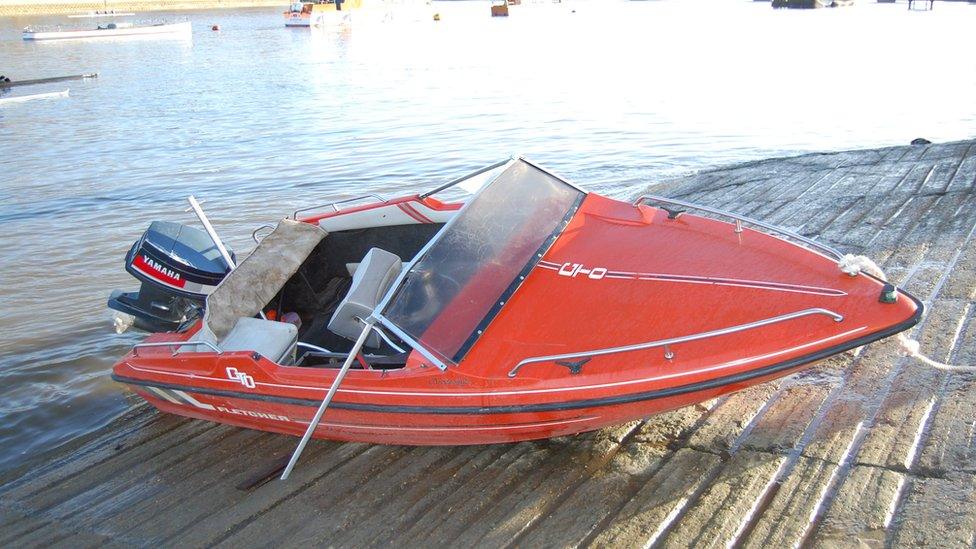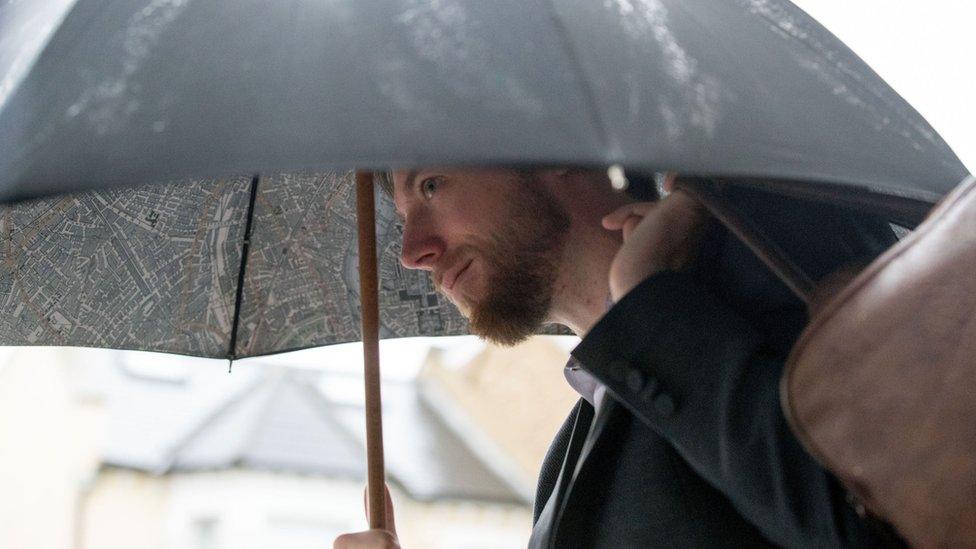What we know about the Jack Shepherd case
- Published

Jack Shepherd fled the country and did not attend his trial
After months on the run, convicted killer Jack Shepherd has handed himself in to police. This is what we know about the case and what could happen next.
What did Shepherd do?
Charlotte Brown’s father Graham said he felt an “overwhelming sense of emotion” after Shepherd's arrest
On their first date in December 2015, Shepherd and Charlotte Brown dined in London's Shard skyscraper where he spent £150 on wine and food.
In a bid to further impress his date, the web developer then took the 24-year-old out on a speedboat he claimed he owned.
In mobile phone footage, Ms Brown could be heard shouting that they were going "so fast" as Shepherd drove at more than double the 12-knot speed limit along the River Thames.
The boat, which Shepherd told police he had bought "to pull women", hit a submerged log and tipped over, flinging them both into the water.
He was found clinging to the hull but Ms Brown, from Clacton in Essex, was pulled from the water unconscious and unresponsive.
What happened next?

Shepherd gave an interview to a Georgian TV channel before being arrested
Shepherd was arrested and charged but three days before he was due to stand trial in July for manslaughter by gross negligence, police found he had disappeared.
He had told his lawyers in mid-May he would not be attending the Old Bailey but the Crown Prosecution Service only found out a week before it was due to begin.
During the trial, Shepherd's defence team said they did not know where he was. He was convicted in his absence and sentenced to six years in prison.
Following his conviction, police said they believed Shepherd might have fled abroad but there was "no tangible trace" of him. The last confirmed sighting of him at the time was in March 2018.
But it was revealed to the BBC in January that "there were records" of Shepherd arriving at Tbilisi International Airport on 21 March.
On the day the Ministry of Internal Affairs for Georgia confirmed it was working with the Metropolitan Police to trace Shepherd in the Georgian capital, he handed himself into police in Tbilisi.

Shepherd appeared in an extradition hearing in the Georgian capital Tbilisi last week
Before surrendering, Shepherd gave an interview to local TV channel Rustavi2 which was described by Ms Brown's sister Katie as "unbelievable arrogance".
He was then moved to a temporary detention centre ahead of his first court appearance where he was remanded to a Georgian prison for three months.
Can Shepherd be brought back to the UK?
Charlotte Brown's sister Katie said Shepherd showed "unbelievable arrogance"
Under current diplomatic agreements between Georgia and the UK, Shepherd is eligible for extradition.
It is up to the Crown Prosecution Service to decide whether to make an extradition request to the Georgian authorities, via the Home Office.
However, the process is likely to take quite some time.
And Shepherd's lawyer in Georgia, Mariam Kublashvili, says there are grounds to fight extradition attempts as the manslaughter charge Shepherd was convicted of does not apply under Georgian law.

Mariam Kublashvili said Shepherd "preferred" to serve his sentence in Georgia
Had Shepherd been arrested in a European Union state, the European Arrest Warrant system would have been triggered and he would have been put on a flight home.
Because Georgia is not in the EU, it is signatory to a secondary and far slower international extradition deal.
Under its terms, a convicted person is sentenced to at least four months in prison and "shall be extradited to a foreign state for such crimes that both under the legislation of Georgia and that of the foreign state concerned are punishable by at least imprisonment for one year or by a stricter punishment".

Shepherd told police he bought the speedboat "to pull women"
What will happen to Shepherd's appeal?
UK-based Tuckers Solicitors, which represented Shepherd during his trial, said it was "not aware of his whereabouts" while he was on the run. But the firm had maintained telephone contact with their client.
In December, the Court of Appeal confirmed that a judge had given him permission to appeal against the conviction, although permission to appeal against his six-year jail sentence was refused.
Tuckers said the appeal would be "based on what the defence believe were legal errors made during the trial".
Even if Shepherd returns to the UK the appeal against his conviction will still go ahead, but a date for the hearing is yet to be set.
Shepherd was eligible for legal aid for his criminal trial and this is automatically extended to advice about his appeal - regardless of whether he is in custody or on the run.
Tuckers has said the fee for representing the 31-year-old amounts to "less than £30,000".
- Published12 January 2019

- Published26 July 2018

- Published26 July 2018
